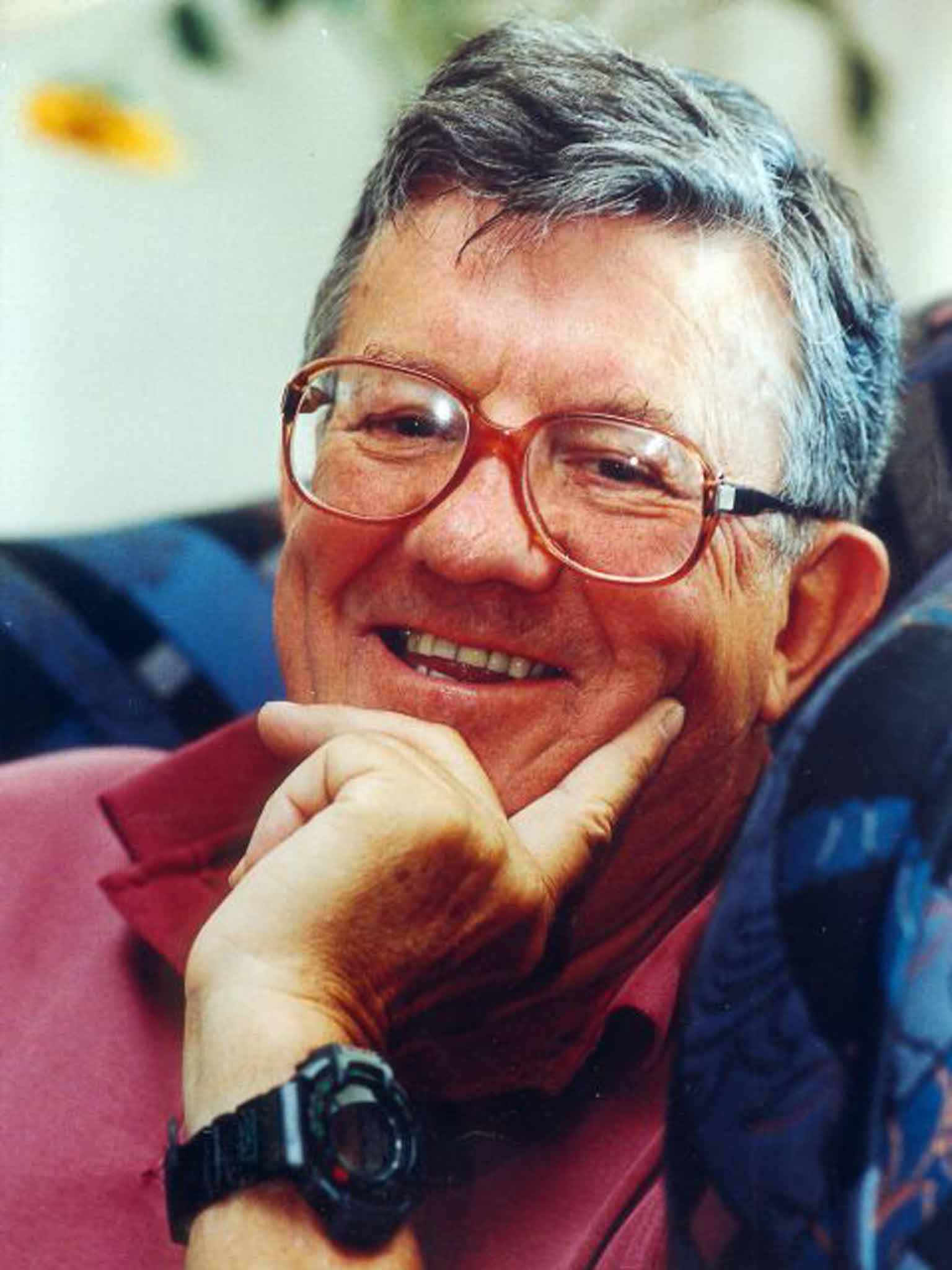Ken Owen: Irascible but eloquent journalist who began as a friend of the apartheid regime but was later its vituperative scourge
Appointed editor of the SA Sunday Times, he transformed it from a white-read, sensationalist rag to a well-respected newspaper with a majority black readership

Ken Owen was one of the giants of apartheid-era journalism – an irascible, inconsistent brawler who edited four newspapers and wrote some of the most memorable prose of his era. He was once the Bolshevik-bashing scourge of the left, deeply appreciated by the apartheid security establishment, but in the final spell of his career he became the scourge of the generals and mandarins of the flailing regime.
Owen, who died of cancer, grew up poor, the son of a male nurse and a domestic worker, and he never forgot it. After the war his father was given a plot of land in the Afrikaner town of Lydenburg, where the strong-willed Ken insisted on speaking English – and was threatened with having his tongue slit by his classmates. So began his two-fisted inclinations.
As a child he read about the gas ovens of the death camps. "I hated the Nazis, and all their spawn," he said. But after reading about the Gulag he also developed a hatred for communism and allied himself with Alan Paton's Liberal Party. He went to work rather than to university, starting out at the Pretoria News, where he earned a reputation as a hard-living hack who could write beautifully. This prompted his despatch to Washington in 1969, but, by then, his drinking and brawling was out of hand.
On his 80th birthday, he broke his silence about this part of his life: "I would not have reached the age of 40, or even 36, but for the tender and loving care I received from a bunch of drunks when I crawled into Alcoholics Anonymous 45 years ago." He never had another drink, and his desire to throw punches also dissipated. His weapons were his tongue and his pen, and on his return home in 1977 he used them mainly against the left.
After a brief spell as editor of the Rand Daily Mail he was appointed editor of the South African Sunday Express, where he thrived on disputes with staff, bosses and fellow editors. For instance, in 1983, when Tertius Myburgh, the regime-connected SA Sunday Times editor, announced his backing for the 1983 referendum on constitutional reform, Owen surprised everyone by going in the opposite direction and calling for a no vote.
South African Associated Newspapers closed the Rand Daily Mail and Sunday Express and Owen was appointed editor of their new vehicle, Business Day. He lasted four days, but returned as editor a year later, and used the paper as a vehicle for his columns.
For a while his views on communism coalesced with those of the security establishment, which courted him, whispering in his ear. This prompted significant errors, including denying the existence of a state-sponsored "Third Force", leading him to suggest that the assassinated academic, Dr David Webster, was a victim of his own side – just as he had once bought into the lie that another academic, Ruth First, was killed on the orders of her husband, Joe Slovo. Years later, a notorious policeman, Craig Williamson, admitted he had sent the parcel bomb that killed First, while Webster's assassin, former policeman Ferdie Barnard, is serving a life sentence.
Owen might have been naïve but he was never biddable, and he chose his own targets, in particular Wits University and its left-wing academics, and also the opposition leader, Van Zyl Slabbert, whose resignation from parliament he castigated. The headline he chose for this polemic: "J'accuse"
In 1989 he left on a red-baiting mission to meet the African National Congress but returned with a different perspective, partly because he liked the ANC lawyer Albie Sachs. He shocked the generals by admitting he'd been wrong about the ANC, telling white South Africans they had nothing to fear.
Over the next five years he turned his big guns on the state, accusing them in his eloquently vituperative style of representing "reform at the cost of liberty" while castigating the corruption and "state socialism" of the mandarins. His political views were shifting away from his communist-hating obsession and he dismissed the "right-wing liberals" who'd once been his allies, instead seeing hope in the right wing of the ANC.
Owen was given a bigger platform when he was appointed editor of the SA Sunday Times in 1990. He bowed out six years on, partly because of a fall-out with management (a periodic occurrence), having transformed The Sunday Times from a white-read, sensationalist rag to a well-respected newspaper with a majority black readership. By then he had acknowledged his errors regarding the security establishment. "I never grasped they were depraved beyond limit," he told the author Mark Gevisser.
For a year he kept silent as he retired to the Cape, and got into pursuits like sailing and learning French, but the columns began to appear again, increasingly excoriating about the ANC government. On his 80th birthday, he was back to his old ways. "Have I offended you all?" he asked. "I'll spell it out: if you were more passionate about Julius and Ethel Rosenberg than about Hungary, then shame on you. If you have ever condoned or accepted armed struggle, then shame on you. And here's the one to catch you all: if you have never worried about Reds under the bed, then shame on you. Finally, if you have been part of the Left consensus, then shame on you."
Kenneth Owen, journalist: born Pretoria 21 February 1935; married Kate (four stepchildren); died Cape Town 19 March 2015.
Join our commenting forum
Join thought-provoking conversations, follow other Independent readers and see their replies
Comments